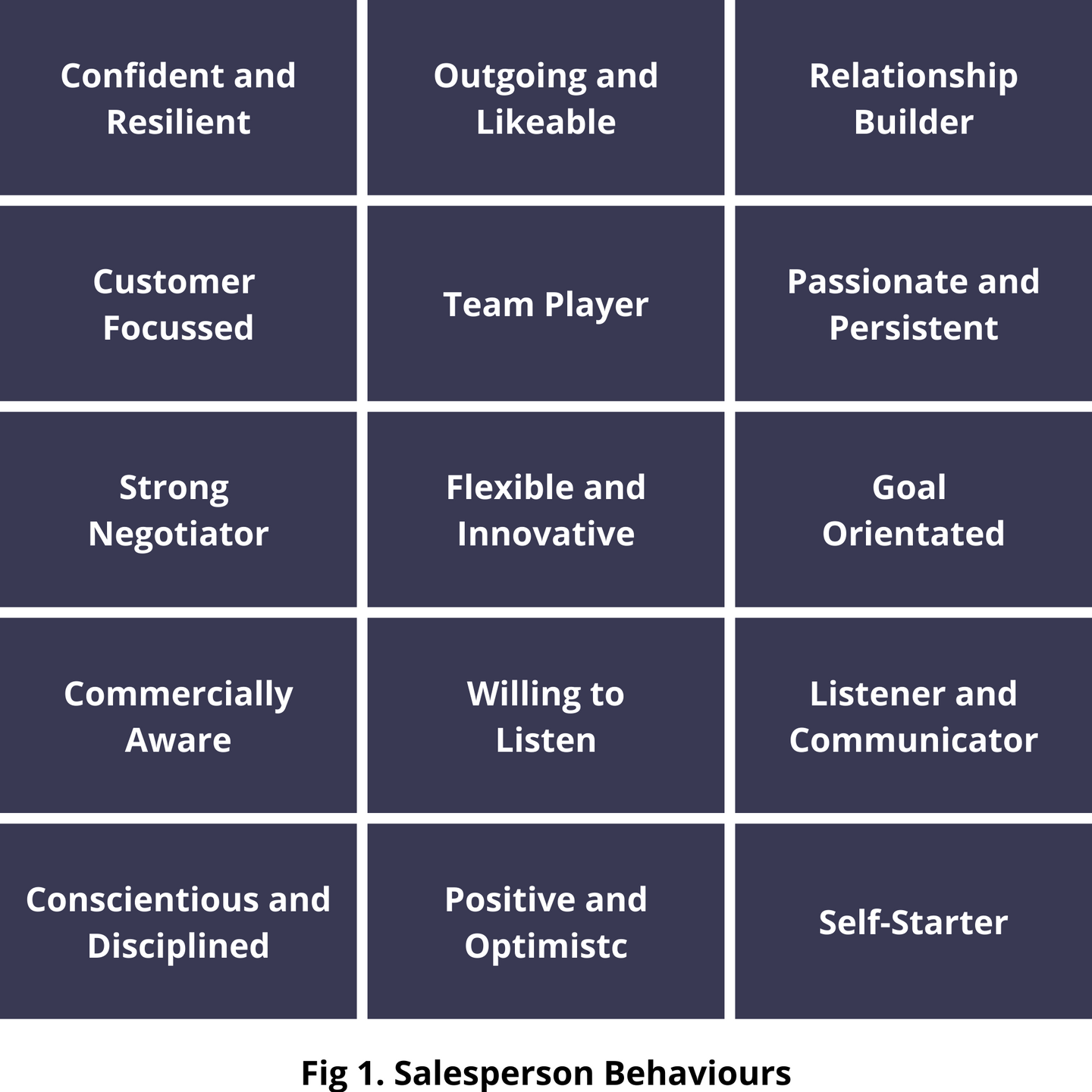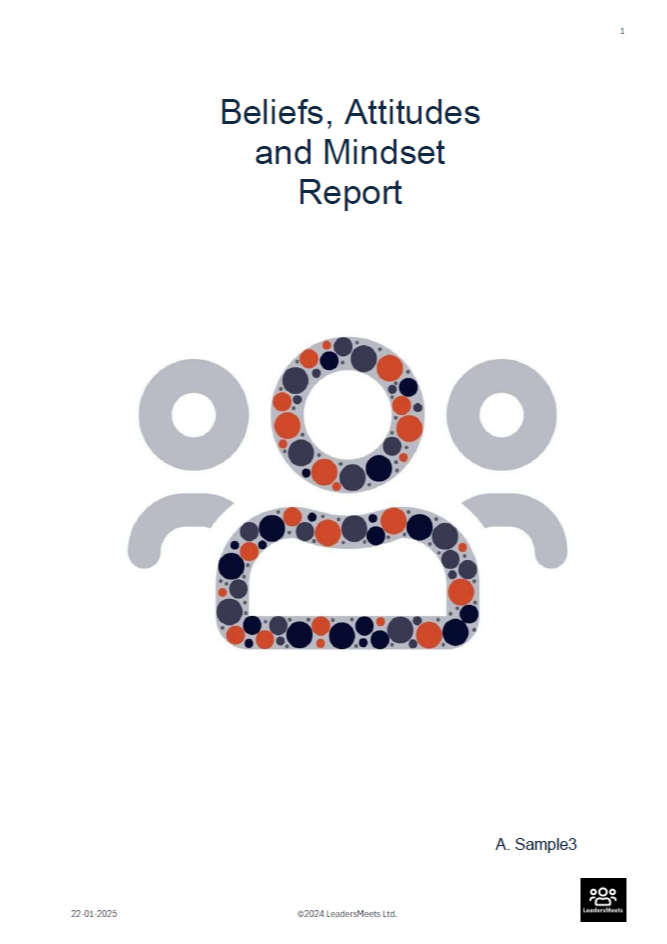Why Beliefs and Attitude—Mindset—Determines Success in Selling
How much is this impacting your sales people?
Many salespeople do not recognise the impact of their mindset upon their sales performance.
Mindset is extremely powerful, for it determines how a Salesperson thinks about, and their attitude, to sales situations.
Crucially, mindset affects the quality of the rapport they establish; the relationships they build and maintain; and crucially the way they close, or fail to close, sales.
Mindset is not just important but critical to sales success.
80% of success is due to psychology—mindset, beliefs, and emotions—and only 20% is due to strategy—the specific steps needed to accomplish a result”
Anthony Robbins, author and speaker.
The Challenge
A study published in the Harvard Business Review, ‘7 Reasons Salespeople Don’t Close the Deal’(1) , interviewed some 230 buyers who reported that in their view :
- “some 12% of the salespeople they met were ‘excellent’;
- some 23% were ‘good’;
- whilst 38% were ‘average’;
- and 27% were ‘poor’.”
The research stated that: ‘The bad news is that the underperforming salespeople lack the self-awareness to know that buyers don’t value them, nor do they understand why. They don’t take the time to figure out why they lost a deal or long-time client. They either don’t know they weren’t selected or they reflexively blame it on factors out of their control.’
The research shows that:
- Some 65% of salespeople are poor to average;
- Just under 72% or some 5 out of the 7 reasons found through the research ‘for sales not being closed’ pertain to the beliefs, attitudes, and behaviour of the salesperson;
- Whilst salespeople may ‘reflexively blame it [their lack of success] on factors out of their control’, their attitude and consequently their behaviour is 100% in their control.
Significantly this research confirms what other people have pointed out before; that selling is primarily psychological in nature and that a positive change in a salesperson’s beliefs and attitude—their mindset—could greatly increase sales closing potential not ‘sales techniques or strategies’.
Unfortunately, too much emphasis, time, and financial resources are focused upon developing sales techniques and strategies with little to no time spent upon understanding and developing the beliefs and attitude—the mindset—of the salesperson given that the view they adopt for themselves impacts their behaviour and performance.
(1) Martin, S. (2017) ‘7 Reasons Salespeople Don’t Close the Deal’, Harvard Business Review, http://hbr.org/2017/08/7-reasons-salespeople-don’t-close-the-deal
Attitude, Behaviour, and Performance
Sports psychologists have recognised for some years that our beliefs and attitudes can and do constantly change—we have some 50,000 thoughts/beliefs each day of which some 40,000 are negative—and that some can also be historic and held as ‘truths’. They understand the need to help and support athletes in developing a positive mindset through a better understanding of their beliefs and attitudes and what they need to change if they are to optimally perform.
Given that salespeople are expected to perform on an everyday basis in a highly competitive environment, which most sports performers are not expected to do, the need to both develop and continually support a salesperson with their mindset is crucial if they are to perform and ‘close deals’.
In Fig 1 (below) there are 15 behaviours and traits that most organisations ideally look for in their recruitment of salespeople. Fig 2 illustrates through the red boxes that 12 out of the 15, or some 80%, of these salesperson behaviours, can be directly impacted by the beliefs and attitudes—a negative mindset—that ‘interferes’ with a salesperson’s capability to execute these behaviours effectively and impacts their capacity to perform.


Can Attitudes be Changed?
We develop many of our beliefs and attitudes early in our life and very often these form into habits of which we are usually unaware. It is important to understand that our beliefs:
- Are our best current thinking about something;
- Can and do often change naturally;
- Are frequently generalisations we have concluded from events or have been ‘given’ to us by parental figures or influential ‘others’ from our past;
- May be ‘conscious’ but are most commonly ‘unconscious’ to us – they are ‘out of our awareness’;
- Can be ‘positive’ and empowering’ but frequently ‘negative’ and disempowering;
- Are one of the main ‘filters’ of what we perceive of, and determine from, events;
- Have different intensities;
- Define our ‘model of reality’ from which we operate; and
- Impact on the behaviours, skills and abilities we have.
Since all of our attitudes are shaped through learning, negative attitudes can, fortunately, be ‘unlearnt’ with insight, knowledge, commitment, support and time. Importantly, we can also build upon our positive attitudes.
Changing an attitude begins with self-awareness and more often than not involves our changing a belief.
Changing beliefs, however, is not easy for us as humans we find ‘change’ difficult; it may involve ‘loss’, something we are ‘hardwired’ to avoid. We may also have beliefs about change in itself that we need to examine before we can consider other beliefs that we need to change.
With many years of experience in the field of Sales Development (remember we also have to sell actively ourselves) we have facilitated many ‘Selling Mindset’ development sessions of some 3-4 hours duration. These sessions are based upon our 30 years of research into how mindset impacts sales and performance and use the online ‘Beliefs and Attitude Mindset Questionnaire’ with each participants. Our programmes can be delivered face-to-face if required, as well as customised to meet Client needs, and ideal sessions for a Sales conference, quarterly sales meeting, ‘away days’, as well as a sales training event.
If you are interested in discussing how ‘Selling Mindset’ may help you and your sales team to leverage your sales performance please click here give us your email address and we will be in touch.
Interested in your Mindset?
The ‘Beliefs and Attitude Mindset’ questionnaire is an online self-assessment questionnaire created to provide individuals with feedback, through a personalised 12-page report, upon eight distinctive attitudes strongly associated with high performers from both business and sport.
With this information, a person can begin to make changes to improve and develop their performance.


